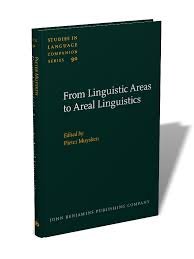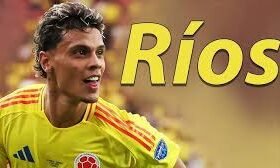The name Omorodion is one that resonates deeply within Nigerian, especially Edo, communities. Rich in cultural significance and layered in meaning, Omorodion is more than just a name—it is a reflection of heritage, ancestry, and generational legacy. In many African traditions, names are not arbitrarily chosen. They reflect not only family ties but also social hierarchy, historical context, and spiritual beliefs.
Derived from the Edo language, Omorodion typically combines two distinct components: “Omo,” meaning child, and “Odion,” which signifies an elder or firstborn. Thus, Omorodion is often interpreted as “child of the elder” or “descendant of the firstborn.” This suggests not only lineage but an important place in the family’s generational uu88.cool.
Table of Contents
The Traditional Role of Omorodion in Families
In traditional Edo society, names like Omorodion are typically assigned to children born into specific family lines or under certain circumstances. The child named Omorodion might be expected to carry forward the responsibilities, values, or even the name of an elder relative—often a firstborn or patriarchal figure.
This responsibility is not light. It can imply that the child is expected to lead, uphold family traditions, mediate conflicts, and pass on oral histories. In many cases, being named Omorodion is a mark of honor. It acknowledges that the child is connected to a significant family figure and may have a role in preserving that person’s legacy.
In this way, Omorodion is not only a name—it’s a title of spiritual and cultural importance. It reflects respect for elders, the power of ancestry, and the high regard for generational continuity within Nigerian families.
Modern Interpretations of the Name Omorodion

As cultures evolve and the Nigerian diaspora spreads globally, the name Omorodion has taken on modern dimensions. In cities like Lagos, London, and New York, individuals named Omorodion often carry the name with pride, aware that it connects them to a deep-rooted history.
For many young Africans, especially those born or raised outside the continent, the name Omorodion serves as a direct link to their roots. In a world where assimilation often pressures people to change or shorten traditional names, those who hold onto the name Omorodion do so deliberately. It’s a way of saying, “This is who I am, and I won’t forget where I come from.”
Even in professional settings, keeping a traditional name like Omorodion is increasingly seen as a statement of confidence and cultural integrity. It challenges the norms that once forced immigrants to adopt “easier” names for social acceptance. In today’s world, uniqueness is celebrated, and names like Omorodion are viewed with curiosity and respect.
Notable People with the Name Omorodion
The visibility of African names has grown in recent years, thanks to increased representation in sports, arts, and entertainment. One notable bearer of the name is Samson Omorodion, a young footballer whose career in European leagues has attracted international attention.
Samson Omorodion’s rising profile not only showcases his athletic talent but also highlights the significance of the name itself. Every time the name Omorodion is called out during a match or reported in the media, it reinforces the idea that African names are not just culturally meaningful—they are also globally relevant.
This type of visibility plays a crucial role in reshaping perceptions. It educates global audiences about the name’s meaning while giving young Africans someone to look up to. Seeing a successful figure proudly carry the name Omorodion sends a powerful message: tradition and success are not mutually exclusive.
Omorodion and the Power of Naming in African Society
In African societies, names serve as more than identifiers—they often carry messages, prayers, or life missions. The name Omorodion might be given in memory of a deceased elder or to honor a grandparent. This form of naming ensures that the family’s legacy is never forgotten, and it helps keep spiritual and emotional bonds intact across generations.
This concept is especially important in cultures that rely on oral history. Without written genealogies, names like Omorodion function as living records. They help trace lineage, connect families, and explain social roles. Each time the name is passed down, it reaffirms the family’s ongoing story and shared values.
For this reason, changing or discarding a name like Omorodion is often considered a loss. It disconnects individuals from the web of relationships and meanings that define their identity. Preserving such names is a way of maintaining cultural continuity in a rapidly changing world.
Challenges Faced by Bearers of the Name Omorodion
Despite its rich heritage, the name Omorodion is not always understood or respected in environments unfamiliar with African culture. Many who carry the name have experienced mispronunciation, ridicule, or pressure to use shortened forms. In such contexts, asserting the name becomes an act of resilience.
For children growing up in multicultural societies, the name Omorodion can sometimes feel like a burden—especially if it’s regularly misread or misused. But with time and maturity, many come to embrace the uniqueness and beauty of their name. They learn to see it not as a source of awkwardness but as a badge of cultural pride.
Moreover, education and global awareness are shifting the narrative. With more people learning about African cultures and languages, names like Omorodion are gaining the recognition and appreciation they deserve.
The Linguistic Appeal of Omorodion

Beyond its cultural importance, Omorodion also stands out linguistically. It has a rhythmic and regal sound, rolling off the tongue with a sense of purpose and dignity. The structure—combining “Omo” and “Odion”—follows a common naming pattern in many African languages, where components are fused to convey deeper meanings.
Such names are poetic by nature. They reveal information about a person’s birth, family, or status without needing explanation. In a single word, Omorodion captures ideas of ancestry, hierarchy, and hope for the future. It’s a powerful example of how language can preserve history and communicate identity across generations.
The Future of the Name Omorodion
As global interest in African culture continues to grow, names like Omorodion will likely become even more prominent. They are part of a wider movement to reclaim and celebrate indigenous identity in all its forms—language, dress, music, and of course, names.
For future generations, carrying the name Omorodion may offer a strong foundation in a world that is often fast-paced and disconnected. It provides a sense of belonging and a reminder that they are part of something bigger—something ancestral and enduring.
Parents naming their children today are more conscious than ever. They understand that names shape self-image, influence how others perceive us, and impact how we navigate the world. Choosing to give a child the name Omorodion is a deliberate act of cultural preservation and pride.
Also read Rayan Cherki Lyon’s Dazzling Young Talent
Conclusion: Why Omorodion Still Matters
In a time when many people are searching for meaning, identity, and connection, traditional names like Omorodion offer something rare: a link to the past and a guide for the future. More than just a label, Omorodion tells a story of family, culture, honor, and resilience.
Whether it’s spoken in a quiet village in Nigeria or shouted across a football stadium in Europe, the name carries with it centuries of tradition and a promise of continuity. To be called Omorodion is to belong to a rich legacy—and to have the responsibility of carrying it forward with dignity and pride.









Got a Questions?
Find us on Socials or Contact us and we’ll get back to you as soon as possible.